
ISLAMABAD:
It was the first visit by an Indian commerce minister to Islamabad in three decades but the firsts did not end there.
The neighbours signed three trade pacts and laid the groundwork for not only opening more land trade routes, but also bank branches in each other’s countries for the first time since their creation.
Representatives of the central banks are scheduled to meet in Mumbai next month to discuss this, said a joint statement issued after the talks.
“We are looking at doing more, including the opening of the bank branches, for which the two (central) banks are in dialogue and structural and institutional framework will be put in place soon,” Indian Commerce Minister Anand Sharma told reporters.
Sharma, who crossed into Pakistan through Wagah Border last Monday along with 150 delegates, arrived in Islamabad after interacting with the business community in Lahore and Karachi.
He held talks with his Pakistani counterpart Makhdoom Amin Fahim on Wednesday.
Trade agreements
In a bid to further trade ties, the two countries signed three pacts – a customs cooperation agreement, a mutual recognition agreement and a redressal of trade grievances agreement.
These agreements were signed on the insistence of Pakistan’s business community that had complained about non-tariff barriers, particularly those regarding quality control and customs procedures.
Pakistan’s Cabinet on Tuesday had approved the signing of the three agreements but deferred a decision on switching over from a positive list of 1,945 tradable items, to a negative list of 636 items barred from trading, after some stakeholders expressed reservations.
It has been agreed that Pakistan will move from a positive list to a small negative list by the end of February, said the joint statement.
The negative list is to be phased out gradually and the timing for that will be announced by end of February, it added.
The complete phase-out that will automatically lead to full normalisation of trade relations, commonly known as the most-favoured nation (MFN) status, will be done before end of this year, the joint communiqué said. Once Pakistan notifies a small negative list, India will, within four months, consider tariff liberalisation, the statement added.
“These agreements will facilitate free flow of trade and we have also looked on multiple visas for (businessmen),” Sharma said, adding that neighbours have to be natural trading partners. Both sides agreed to explore the opening of the Munabao-Khokharapar route for trade, as desired by the Indian side.
A joint working group will be constituted in this regard which will report to the respective governments before the next round of talks between commerce secretaries.
Meanwhile, in March, a second meeting of the expert group on trade in electricity will be held in Lahore, the first meeting of the expert group on trade in petroleum will be held in New Delhi while the Trade Development Authority of Pakistani will organise a lifestyle exhibition in New Delhi as well.
To a question on barring Pakistan from investing in India, Sharma said that investments would be allowed “once economic engagement deepens.”
Pakistan’s Commerce Secretary Zafar Mahmood said the process of trade normalisation is well on course but it is “time-consuming, hazardous and requires patience.” (With additional input from AFP)
(Read: Murmurs of change)
Published in The Express Tribune, February 16th, 2012.
COMMENTS (11)
Comments are moderated and generally will be posted if they are on-topic and not abusive.
For more information, please see our Comments FAQ









































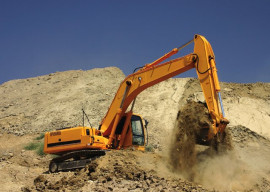
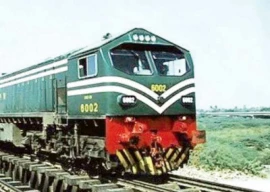

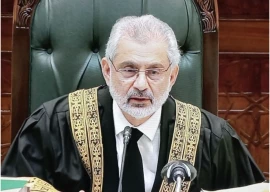

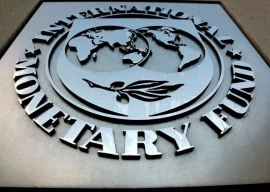










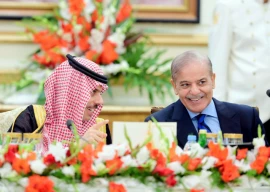
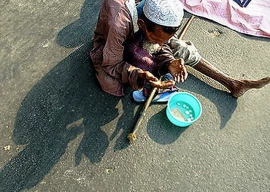
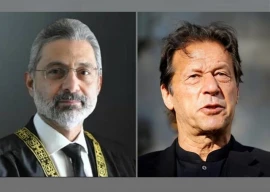
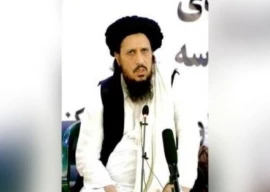
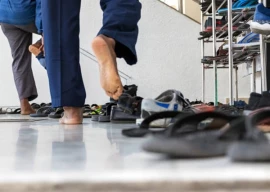
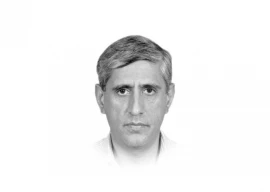





@Balma: Hyderabad, AP, India NOT DECCAN. You have to learn that things have changed.
And of course, no one calls chips french fries in France:-)
@Balma: "We need direct flights to Lucknow and Hyderabad Deccan from Karachi"
Welcome. All legitimate tourists and businessmen seeking to visit India are more than welcome as are the people who want to meet family members in India. But when you visit India, please be sure to refer to Hyderabad, Andhra Pradesh. No-one in India calls it Hyderabad Deccan. Also you can certainly arrange your flight routine the way it suits you but there was no reason to make a dig at Mumbai unnecessarily.
We need direct flights to Lucknow and Hyderabad Deccan from Karachi, in addition to current flights to Dehli and Bombay. I try my best to avoid Bombay. It is so dirty that it makes Karachi look like heaven.
Trade with India??? forget kashmir and only focus on money and economy
The two countries had wasted decades in animosity and time had come to come close to each other for trade and commerce. Al neighbouring countries had some issues but that did not affect their trade relations. When India and China could trade despite having political issues, why not India and Pakistan? Economic engagement will help conquer all the challenges we face today. Let’s write a new chapter in the history of the two countries. Let’s make the most of changing economic dynamics of the modern world that have posed both threats and opportunities to us.
The size of the delegation numbering 150 for trade expansion says it all about India's intentions to nomalise relations with Pakistan who should not miss this opportunity and grab it by both hands. The whole credit of improving relations between the two countries goes to the Indian PM Manmohan Singh who was born in Gah, Chakwal Distt in 1932 and migrated along with the family in 1947 is making all out efforts to achieve the same despite reservations from opposition parties and some of his own party members.
@BruteForce: a sensible move but why caring for indian advantage only...if relation has to flourish...it must be mutually beneficial and not one sided. with your comment you are convincing the cynics in pakistan that their country will be loser in trade with india.
India should make up for the trade deficit with China through this.
India is expected to export more to Pakistan then import from it. It should actively pursue to increase the gap in its favour. This will also reduce Chinese domination Pakistani market.
This will be like a shot of adrenalin to the Pak economy. We should have done this a long time ago and would have benefited from the big growth boom India has had over the past decade and a half. They would have lapped up our exports. All this talk of India killing our industries is garbage. That was already taken care of by the Chinese. We are a more open trade regime than India and should only benefit when both countries liberalize. The question is for how long the Pak army will tolerate this ray of hope.
Interaction be it in sport , trade & cultural exchanges helps bring down tension between countries .